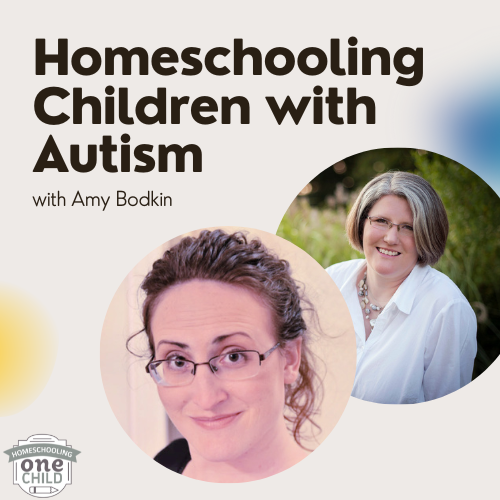|
There are a myriad of different reasons why people choose to homeschool their children: there is the economic benefit of avoiding high private school fees; there is the convenience of scheduling schooling around other family activities; if a child has special needs that aren't being met in public school; or you don't agree with public schools' curriculum choices.
One of the most important benefits of homeschooling is the flexibility with which you can tailor your child’s education. It is a well known fact that every individual has individual needs, and homeschooling allows you to create a learning environment that suits your child particularly. When you involve your child in that process, you create buy-in and ownership of your homeschool within your child. When you undergo homeschooling, it is important that you have a clear curriculum, mindset, and a plan to execute it. But within that plan, you should understand that you have a tremendous amount of flexibility: there are many different ways that a child can learn something, and many different things to learn in a given subject. One of the best ways that you can ensure a high level of learning retention is to encourage your child to take a personal interest in his or her education. Although this may seem obvious, many people growing up who went though a traditional school system will probably agree that their education was received in an authoritative way: schooling and your education was something that was done to you, not with you. When homeschooling, however, you can take advantage of the almost unlimited flexibility at your disposal and let your child take a more active role. While you can’t, obviously, let your child do whatever he or she wants education-wise, you should always explain to him or her a given education plan, and see what he thinks. Each year in the spring, my husband and I ask our daughter what she would like to learn about in history and science the next school year. While she doesn't have the flexibility to choose what she learns in math or language arts, she enjoys choosing what she learns in history and science, and therefore has more buy-in. For example, when you start your school day, outline the plan for the day with your child. Depending on his or her age you can also explain the reasoning behind the plan. If there are any things the child seems averse to doing, try and take them seriously. You should not, of course, avoid certain subjects or activities simply because your child doesn’t like them. You should, however, ask your child why he or she doesn’t like something in the day’s plan, and to suggest alternatives. In many cases you will be pleasantly surprised by what your child comes up with, and be able to incorporate it into the day’s work. As much as possible, you should have a list of alternatives in mind for assigned activities. The idea is to try and think of alternative activities that accomplish the same task. If your child protests against a certain exercise, then, you can offer them an alternative. This can be extremely effective in getting your children to learn material that they dislike. Oftentimes the child simply has to feel that he or she is more in control of the situation to enjoy it. Even though you are ultimately controlling your child’s education, by granting them small allowances and choices, while still sticking with the larger picture, everybody wins: your child feels he is doing what he wants to do, and you are still teaching your child what you want him to learn.
0 Comments
Leave a Reply. |
AuthorTerrie Bentley McKee is an author and speaker who homeschools her youngest daughter. Married to her husband Greg, they have four children, all of whom have special needs of varying degrees. Terrie is a follower of Jesus Christ and tries to glorify God in all she does. To read more about her testimony, click here. Affiliate LinksHomeschooling One Child is a participant in the Amazon Services LLC Associates Program, an affiliate advertising program designed to provide a means for sites to earn advertising fees by advertising and linking to amazon.com. Check out our YouTube channel!Check out our podcast!Please pin!Archives
January 2024
Categories
All
|
- Home
- Blog
- Podcast
-
Resources
- Teach What is Good Devotional
-
Convention Resources
>
- Homeschooling a Teen with Autism
- Tips on Creating a Disability-Inclusive Church
- How to Teach Your Exceptional Child about Faith
- Homeschooling Preschoolers with Autism
- How to Pick Developmentally Appropriate Curriculum for your Autistic Child
- Overwhelmed
- Homeschooling One Child
- Life Skills Chickens
- Strategies on Homeschooling Kids with Special Needs
- About Us >
- Vlog
- Homeschooling News
- Printables
- Special Needs
- Curriculum
- Encouragement
- Home Management >
- History
- Science
- 25 Days of Advent
- Courses
- Store
(C) 2023 Terrie Bentley McKee ALL RIGHTS RESERVED
- Home
- Blog
- Podcast
-
Resources
- Teach What is Good Devotional
-
Convention Resources
>
- Homeschooling a Teen with Autism
- Tips on Creating a Disability-Inclusive Church
- How to Teach Your Exceptional Child about Faith
- Homeschooling Preschoolers with Autism
- How to Pick Developmentally Appropriate Curriculum for your Autistic Child
- Overwhelmed
- Homeschooling One Child
- Life Skills Chickens
- Strategies on Homeschooling Kids with Special Needs
- About Us >
- Vlog
- Homeschooling News
- Printables
- Special Needs
- Curriculum
- Encouragement
- Home Management >
- History
- Science
- 25 Days of Advent
- Courses
- Store








 RSS Feed
RSS Feed
